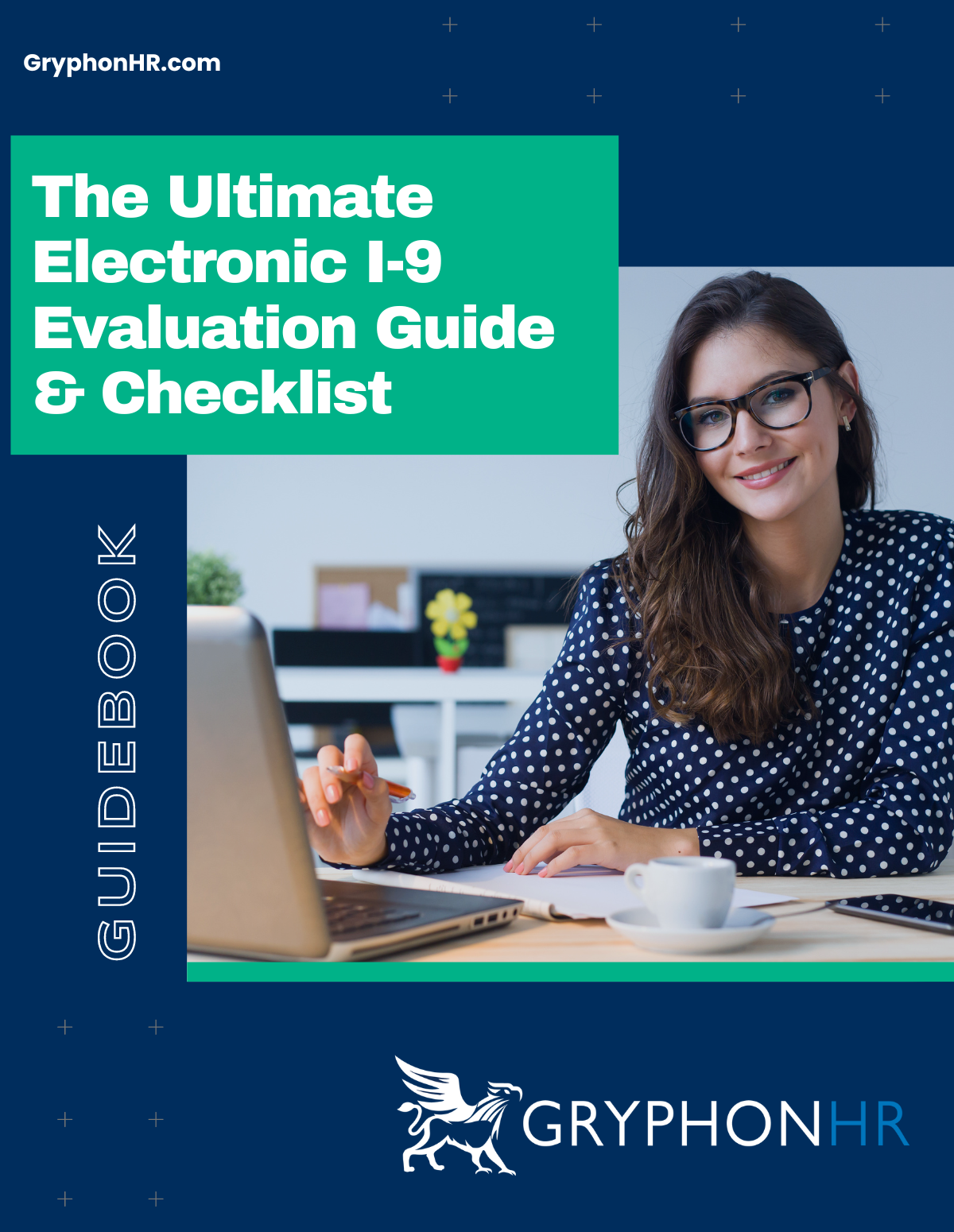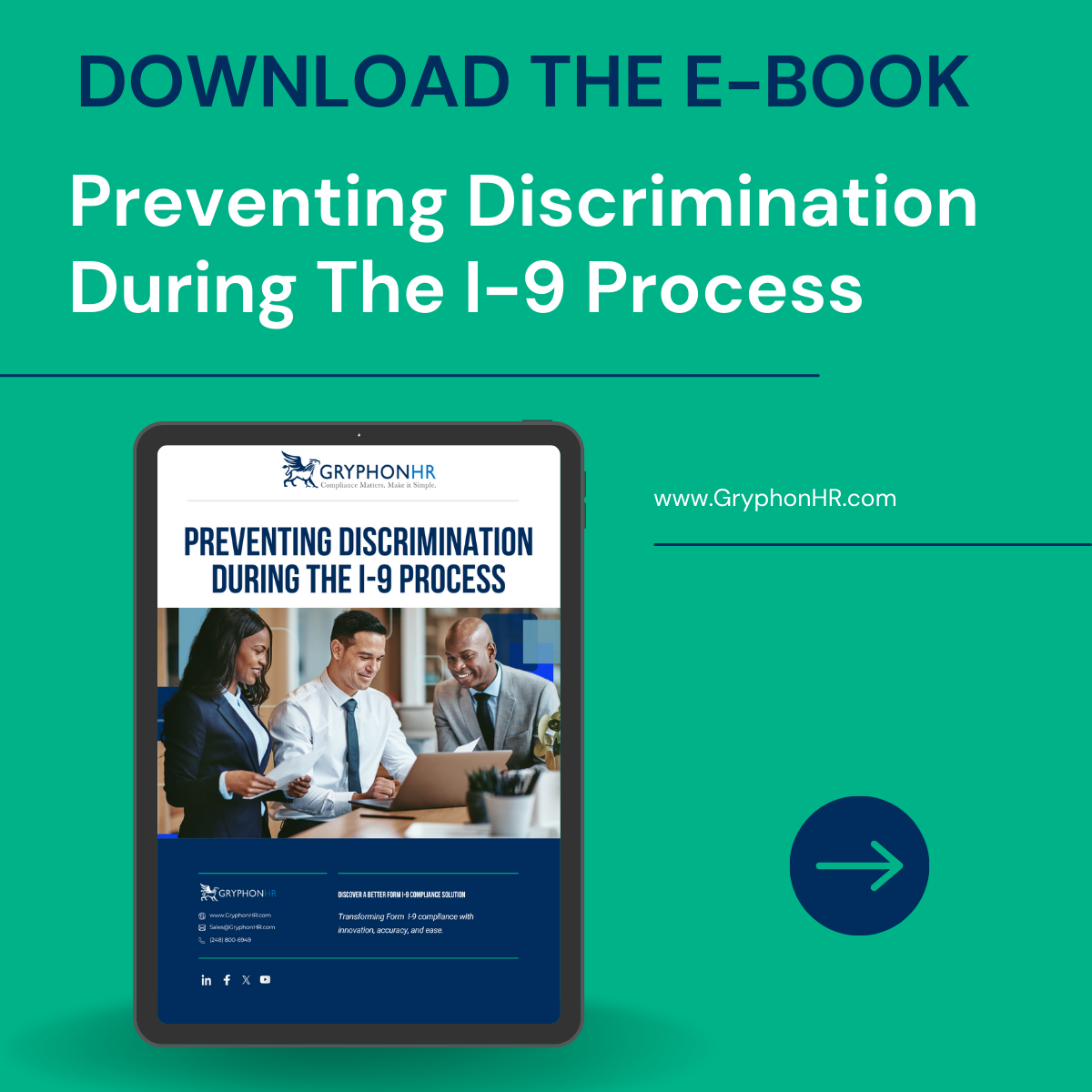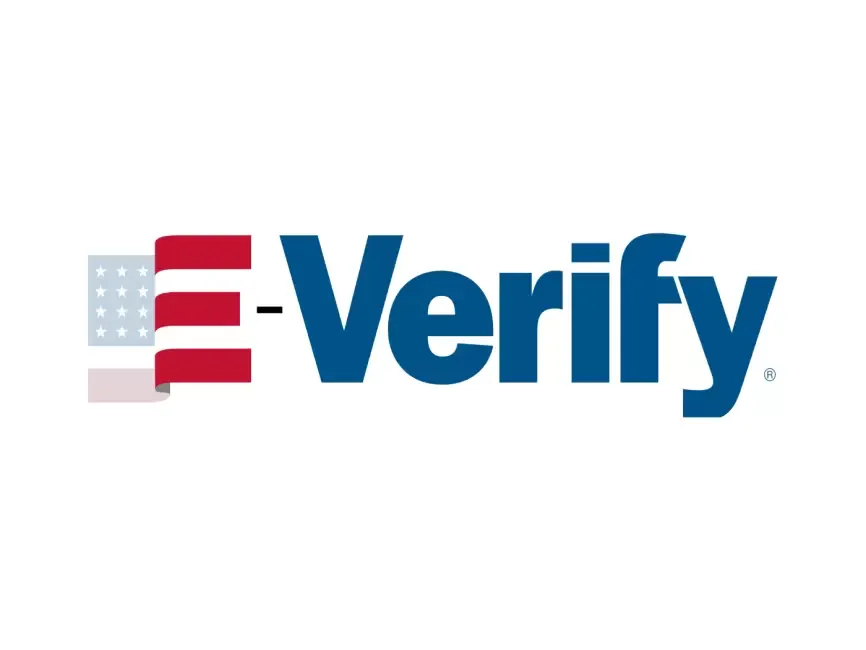Authored By: GryphonHR Blog Contributor
GryphonHR blog contributors include , consultants, researchers, and other subject-matter experts who’ve written content for our blog.
September 30, 2023
The Justice Department has recently announced a significant settlement with Miami-based janitorial services company, Greene Kleen of South Florida Inc. This resolution addresses the department's findings that Greene Kleen violated the Immigration and Nationality Act (INA) by displaying discriminatory practices against non-U.S. citizens in verifying their work permissions within the United States during the employment eligibility process.
Assistant Attorney General Kristen Clarke of the Justice Department’s Civil Rights Division emphasized,
"Employers cannot impose specific document requirements on workers to prove their permission to work that differ based on citizenship or immigration status. The department will not tolerate unlawful and discriminatory practices, which create unnecessary barriers to jobs for people who are just trying to make a living."
The investigation revealed that from Jan. 1, 2019, to Feb. 28, 2022, Greene Kleen allowed U.S. citizens a choice in presenting acceptable documentation during the Form I-9 process, while simultaneously insisting that lawful permanent residents and other non-U.S. citizens provide only one specific type of documentation.
As part of the settlement, Greene Kleen will pay $140,000 in civil penalties to the United States, institute comprehensive training for its employees on the INA’s anti-discrimination requirements, overhaul its employment policies, and be subject to monitoring by the department.
Federal law unequivocally grants all workers the freedom to choose valid, legally acceptable documentation to establish their identity and work authorization, regardless of their citizenship status, immigration status, or national origin. The INA’s anti-discrimination provision further prohibits employers from demanding specific or unnecessary documents based on these factors.
It is crucial for employers to understand the ramifications of requesting specific documents for employment eligibility. Under the law enforced by the Immigrant and Employee Rights Section (IER), employers are strictly forbidden from demanding excessive or different documents, or rejecting genuinely valid-looking documents due to a worker's citizenship, immigration status, or national origin. This type of discrimination commonly arises during the Form I-9 and E-Verify processes, and several companies have been investigated and penalized for their unfair document practices.
Federal law mandates consistent adherence to Form I-9 and E-Verify rules, irrespective of an employee's citizenship, immigration status, or national origin. This anti-discrimination law is outlined in 8 U.S.C. § 1324b, with accompanying regulations found in 28 C.F.R. Part 44.
The Form I-9 instructions clearly state that employees may present any documentation from the Lists of Acceptable Documents. At the time of hire, employees can choose to provide either an unexpired List A document or an unexpired List B document along with an unexpired List C document. Employers are advised to accept all documents that reasonably appear genuine and relevant to the employee.
Employers enrolled in the E-Verify program are obligated to apply it uniformly, irrespective of an employee's citizenship, immigration status, or national origin. This ensures compliance with 8 U.S.C. § 1324b and E-Verify regulations. Engaging in discriminatory practices during the E-Verify process, like mandating a DHS-issued document exclusively from non-U.S. citizens for E-Verify case creation, constitutes a violation of both 8 U.S.C. § 1324b and the established E-Verify rules.
Employers must adhere to the law and not demand additional or different documents than what is required to establish an employee's identity and eligibility to work in the United States.
More information about the Form I-9 and E-Verify requirements can be found at:
I-9 Central and the
E-Verify website.
Discover how an electronic Form I-9 and E-Verify compliance solution can ensure proper and consistent document practices throughout your organization, mitigating the risks of substantial fines and penalties.
Contact GryphonHR to view a live demo or for more information.

Authored By: GryphonHR Blog Contributor
GryphonHR blog contributors include , consultants, researchers, and other subject-matter experts who’ve written content for our blog.
Stay updated on Form I-9 and E-Verify!


Is your I-9 compliance software placing you at risk? Learn more about the compliance requirements for electronic I-9 systems and how to evaluate important features. Skip the form and download this interactive guide!

Avoiding discrimination during the Form I-9 process is critical to preventing liability, hefty fines, and unfair hiring practices. Download our free e-book to learn more.



MENU
STAY CONNECTED
Join our newsletter to learn more about Form I-9.